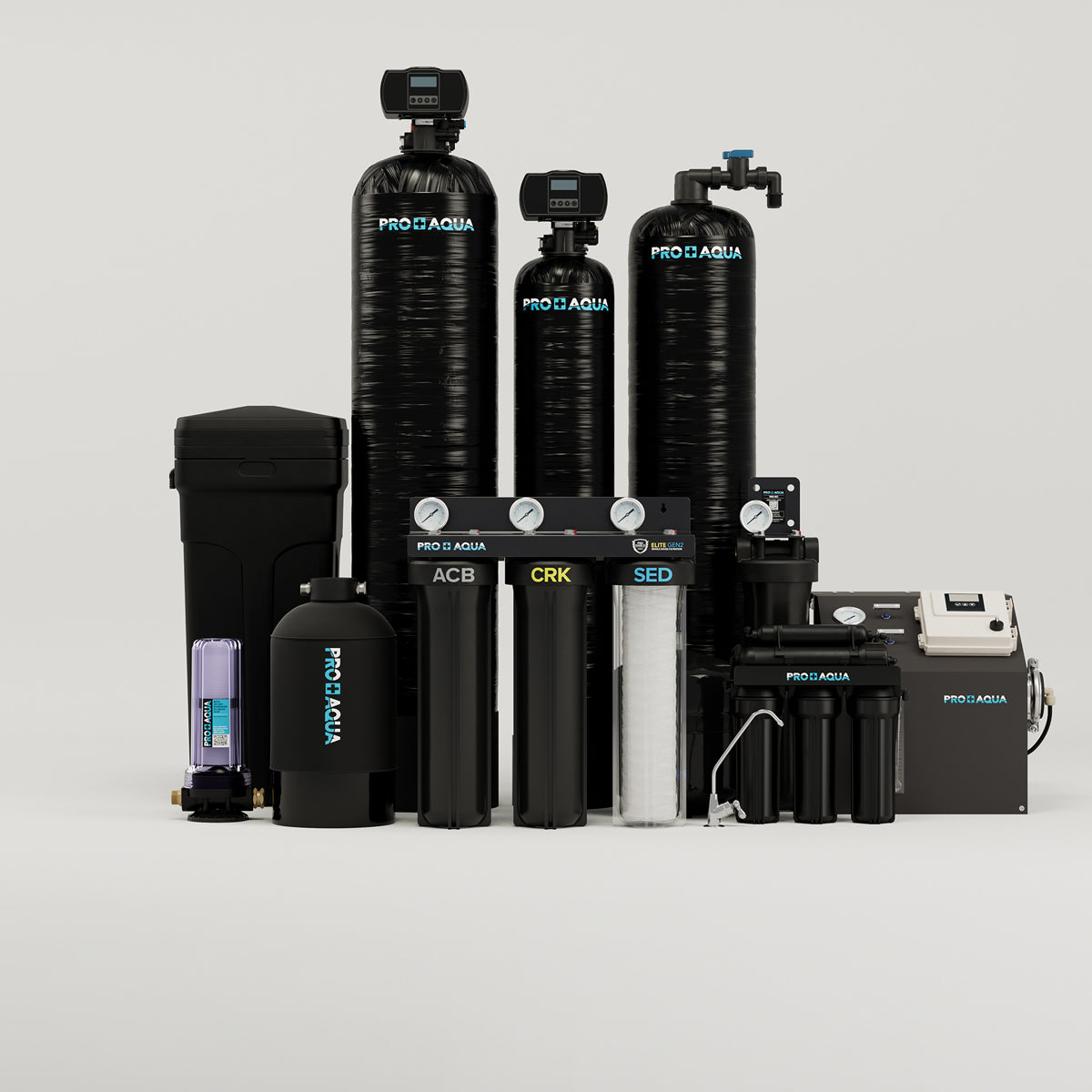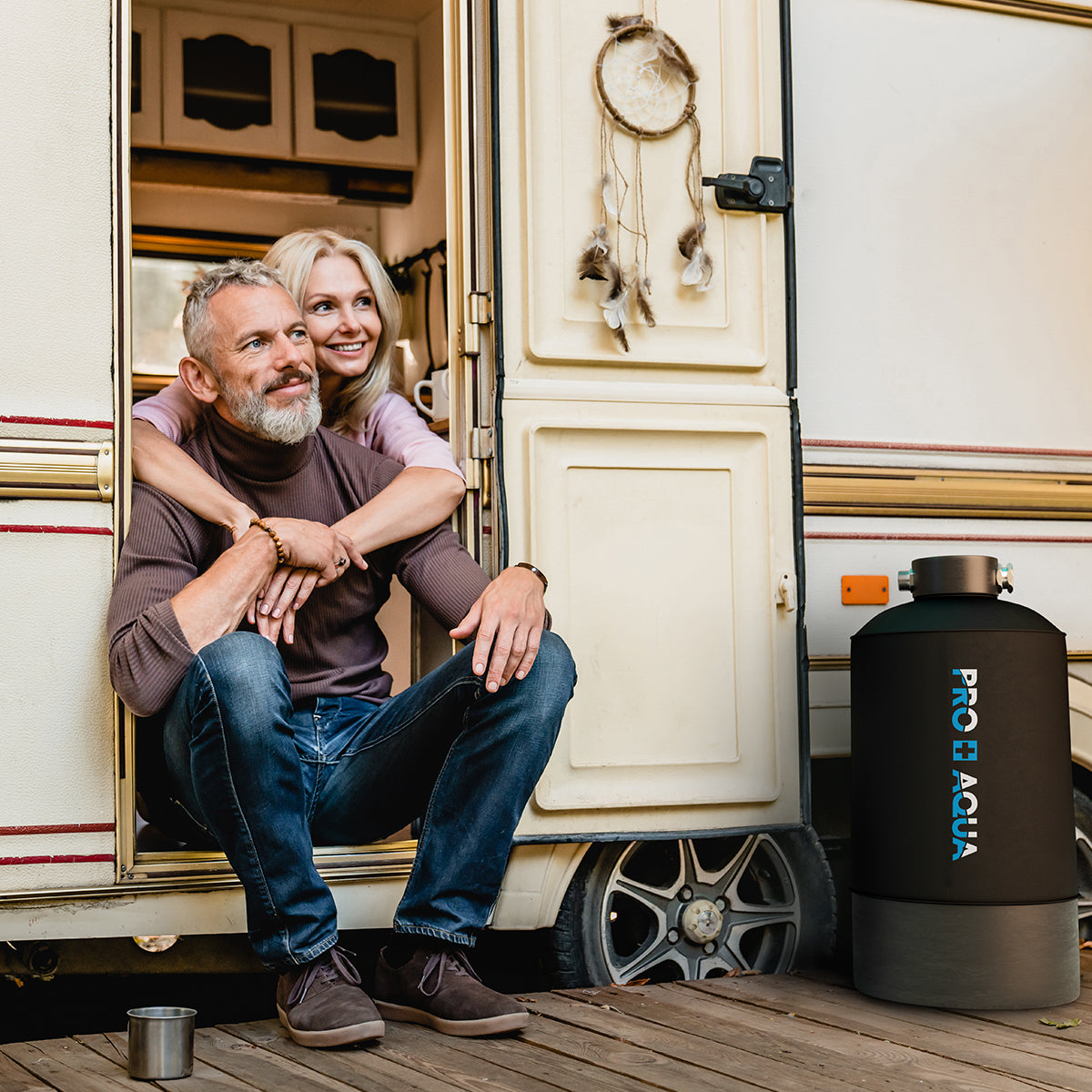According to the Water Quality Association, more than 85% of U.S. households have hard water—meaning your home likely does too. But how can you tell for sure? And what can you do about it? This guide will help you determine if you need a water softener, how to test for water hardness, and the best system to treat it.
What Hard Water Matters
Hard water contains high levels of calcium and magnesium. Over time, these minerals build up in your plumbing, appliances, and fixtures—leading to limescale deposits, clogged showerheads, dingy laundry, and decreased water pressure.
Signs You May Have Hard Water:
Look for calcium and lime buildup on aerators, if you see a white chalky substance, then that’s a clear sign you have hard water. Clogged shower heads are a clear indication that you may have some calcium buildup, which in turn will cause lower water pressure and volume coming out.
Persistent water spots on dishes and glassware, even after using a rinse aid, are another common indicator. Dry skin and dull, brittle hair after showering are common side effects of bathing in hard water.

How to Test for Water Hardness at Home
The most reliable way to determine if you have hard water is by using a Total Hardness Test Kit. These affordable kits are widely available online or at hardware stores and come in test strip or chemical-based options. The tests turn a certain color that determines the level of hardness in your water.
How to Use a Water Hardness Test Kit:
- Collect a small water sample from your faucet.
- Dip a test strip or add the chemical reagent as instructed.
- Compare the resulting color to the chart included in the kit.
If your water tests above 7 grains per gallon (GPG), it is considered hard and would benefit from a hard water treatment system.
Solution? PRO-S-80E Whole-House Softener
If your test confirms hard water, a whole house water softener is your best long-term solution. One of the top-rated systems on the market is the PRO-S-80E 80,000 Grain Whole-House Water Softener.
This system is was engineered to soften water significantly and is equipped with a metered water counter that only regenerates when needed, saving thousands of gallons of water and salt per year. It also comes with a 5-year warranty for peace of mind.
Once your new water softener is installed, make sure you perform a Total Hardness Test and compare the difference between your old water and soft water. You’ll be pleasantly surprised by how well your new system softens your city water. The improvement in water clarity, appliance performance, and skin feel is usually immediate and dramatic.








Leave a comment
This site is protected by hCaptcha and the hCaptcha Privacy Policy and Terms of Service apply.